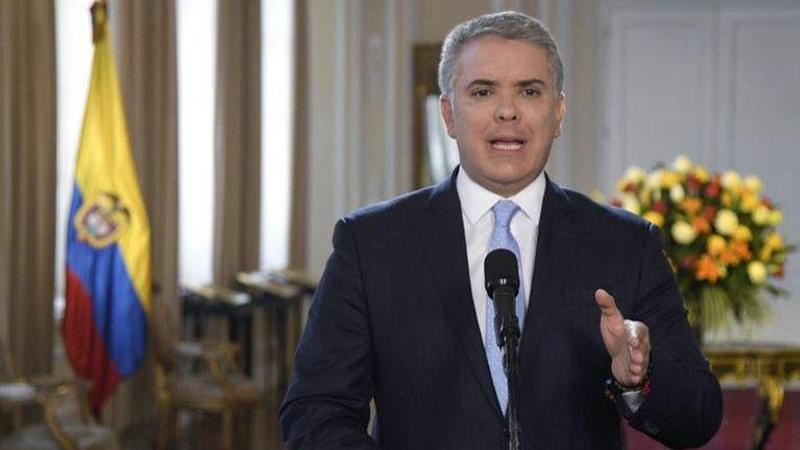Published 08:51 IST, May 15th 2020
Colombia steps up anti-virus measures at Brazil border
Colombia stepped up measures Thursday night aimed at halting coronavirus infections near the border with Brazil as hospitals grow overwhelmed and cases rise in a vulnerable part of the Amazon home to many indigenous groups.

Colombia stepped up measures Thursday night aimed at halting coronavirus infections near the border with Brazil as hospitals grow overwhelmed and cases rise in a vulnerable part of the Amazon home to many indigenous groups.
President Iván Duque announced that all residents in the Amazonas department are being ordered to stay inside except to seek food or medical attention. The military has also dispatched troops to strengthen border security.
“We find ourselves in a situation that could turn critical given the differences we have from an epidemiological viewpoint with neighbors,” Duque said.
Colombia has taken some of the region’s strictest measures against the virus, implementing an early nationwide lockdown that remains in effect in much of the country. That stands in stark contrast to Brazil, where President Jair Bolsonaro has criticized attempts by governors and mayors to close nonessential businesses.
Colombia's river port city of Leticia and the giant Amazonas department have seen a spike in cases in recent days, swelling from 105 at the start of the month to 924. Doctors say the region’s poorly equipped hospitals are crowded, and local officials say they may need to open a new cemetery to handle the number of bodies.
Thus far, 30 people have died in the department.
Many indigenous people live near Leticia, making them particularly vulnerable to catching the virus. A total of 146 have been diagnosed, according to the National Indigenous Organization of Colombia.
Six people have died, according to the group.
The dead include an indigenous actor who starred in the acclaimed Colombian film “Embrace of the Serpent.” Antonio Bolivar fell ill with symptoms of COVID-19 in late April and died in early May.
His son told the newspaper El Tiempo that Bolivar initially used traditional indigenous treatments like covering his body in cold, wet cloths to bring down a 104-degree fever. But his family called an ambulance when the fever spiked back up and he began having trouble breathing.
An ambulance arrived three hours later, transporting him first to a clinic that refused to receive him because it didn’t have an oximeter, which measures the oxygen saturation of blood. He was taken to another clinic, where he waited for two more hours before eventually being admitted.
He died at the hospital a week and a half later.
“The doctor came out, said he had been delicate and died,” Cristian Bolívar said.
Updated 08:51 IST, May 15th 2020




